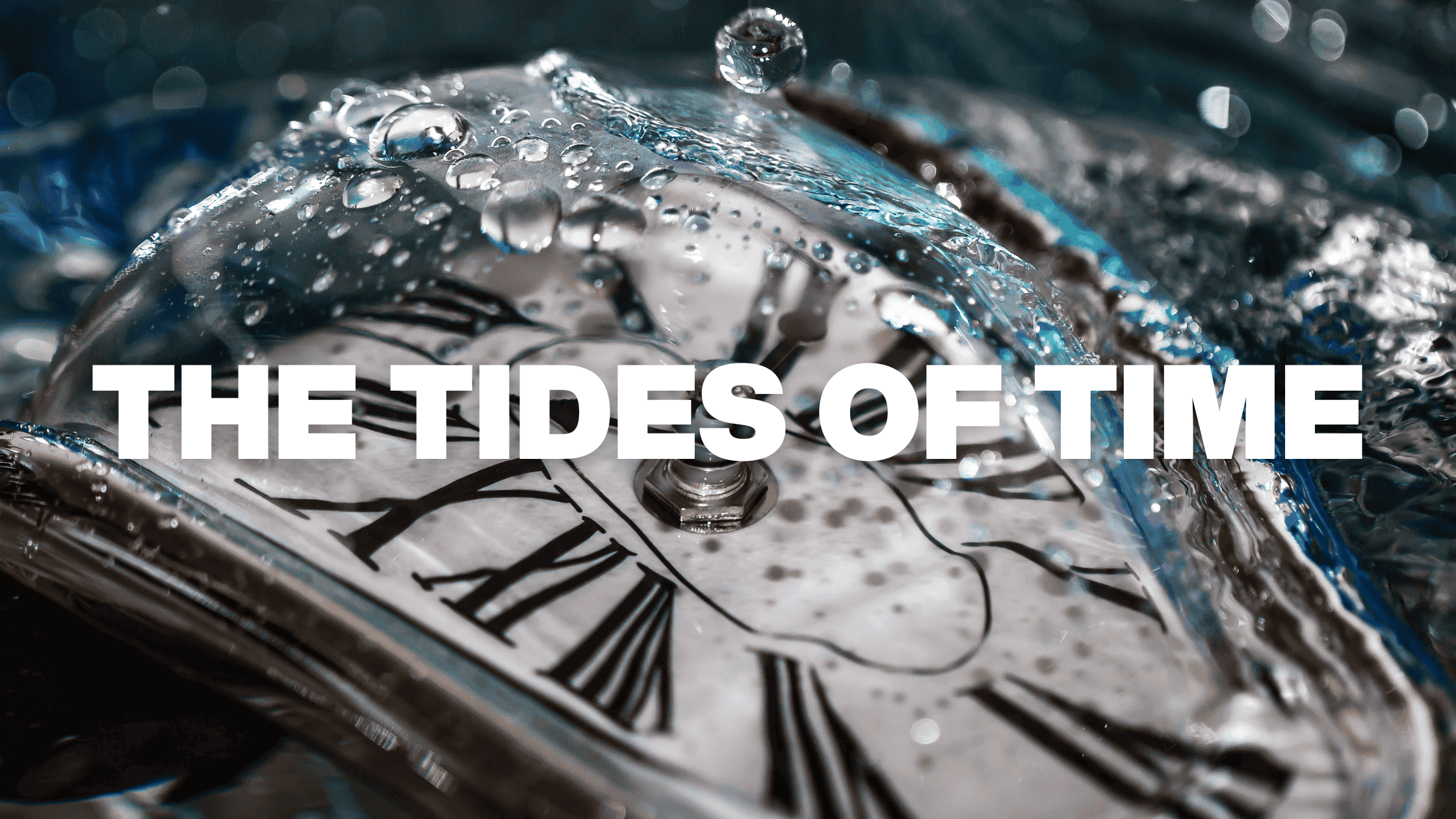
Just as the ocean’s tides ebb and flow with rhythmic certainty, time carries us through the waves of life, each crest and trough marking our passage through years, days, and moments.
Yet, time isn’t a monolith—it’s a vast sea composed of various currents and depths. In this exploration, we’ll dip our toes into the intriguing waters of time, examining concepts like Kairos and Chronos, as well as Linear and Cyclical time. Each perspective offers a unique lens through which we can view our existence, providing insights that challenge our conventional understanding of how time passes and how we pass through time.
Chronos and Kairos
Chronos is what we’re most familiar with – the sequential, unstoppable march of time. It represents the relentless tide, a continual forward push – measured, precise, and grounded in reality. But here’s the kicker: it can lead to tunnel vision, where we’re so obsessed with deadlines and schedules that we neglect the value of the present moment.
That’s where Kairos comes in. the fleeting wave, representing opportune moments, and being aware of the ‘right now’. Kairos empowers us to seize opportunities that may slip through the cracks of a Chronos-dominated mindset. However, we must balance it well, lest we become slaves to spontaneity.
Linear and Cyclical
Then we have Linear time, the perception of time as a straight path from birth to death. It’s beneficial for long-term goal setting and planning. Yet, it can promote a ‘race against time’ mentality, causing unnecessary stress.
Lastly, Cyclical time, where time is viewed as recurring cycles or seasons, much like nature. Think of it as the gentle rhythm of recurring tides. This perspective encourages us to respect natural ebbs and flows, thus leading to sustainability and resilience. The caveat? It may cause a sense of repetitive monotony if not balanced with linear time.
Why Navigating These Tides Matters
How we perceive and utilize time can make or break our productivity, creativity, and overall wellbeing. After all, we’re not mere bystanders in the passage of time or servants to time. We’re active participants.
So let’s not merely drift with time; let’s learn to navigate it. Strike a balance between these time perceptions, and you’ll not only be productive but also content, fulfilled, and purposeful.
Remember that no one time perspective fits all situations.
It’s about being adaptive, flexible, and mindful. Once you master this, you’ll navigate life’s time waves like a seasoned sailor.
Now, isn’t that a skill worth having?

